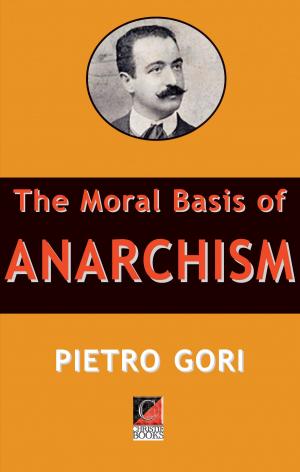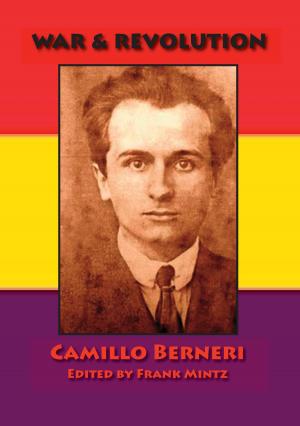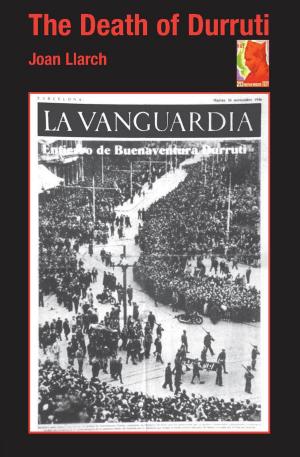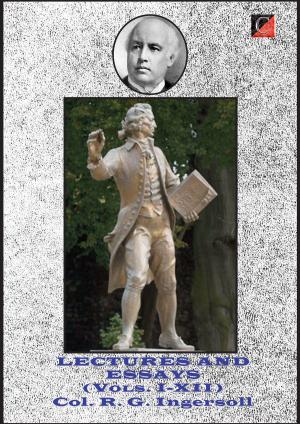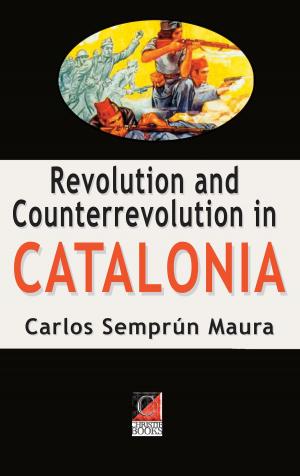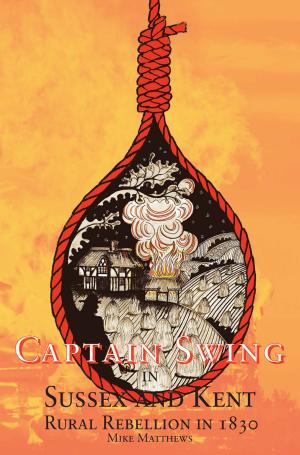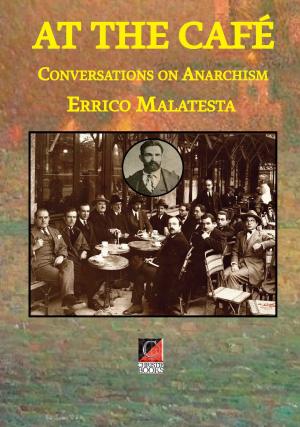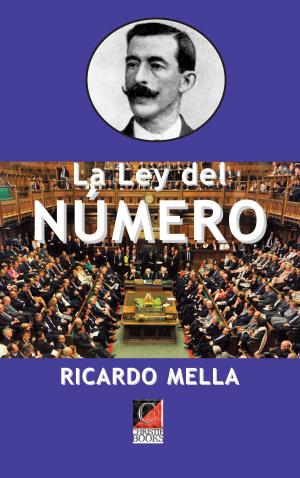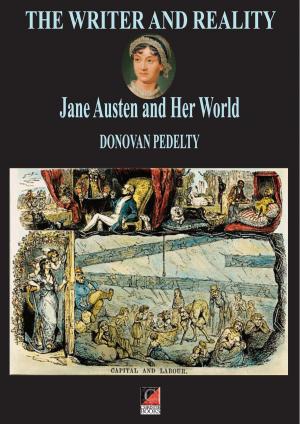CONDITION OF SCOTLAND FROM THE FOURTEENTH TO THE EIGHTEENTH CENTURY
Nonfiction, History, Civilization, British| Author: | H. T. Buckle | ISBN: | 1230000813259 |
| Publisher: | ChristieBooks | Publication: | November 26, 2015 |
| Imprint: | ChristieBooks | Language: | English |
| Author: | H. T. Buckle |
| ISBN: | 1230000813259 |
| Publisher: | ChristieBooks |
| Publication: | November 26, 2015 |
| Imprint: | ChristieBooks |
| Language: | English |
English historian Henry Thomas Buckle’s (1821–62) plan was to write a fourteen-volume history of civilisation, putting historiography on a more scientific basis, comparing and contrasting the intellectual, political, religious and social histories of certain nations. Unfortunately, his death at the age of 41 meant only three volumes were completed: I — a General Introduction as to his methodology and philosophical premises; II — France and Spain, and III — Scotland . The present eBook consists of the first part of Vol. III; the second part of which, ‘An Examination of Scotch Intellect in the 17th and 18th Centuries’, will follow shortly.
Buckle’s entertainingly informative and highly original libertarian account of Scottish history focuses largely on the vice-like grip of the misanthropic pre- and post-Reformation Presbyterian/Calvinist clergy, and the profound and paradoxical effect they and the Kirk had on national consciousness and the Scottish character: politically liberal, enlightened, rebellious, King-hating, Bishop-stabbing and egalitarian, yet at the same time hell-fearing, ascetic, sectarian and obsequiously deferential to the ‘meenister’ and clan chieftans. As blogger and Buckle aficionado Ken MacLeod writes: “He [Buckle] trawled every hell-fire sermon, every seditious screed, every tormenting self-tormented twisting of the conscience of the elect, every relevant Act of the Parliament of Scotland, every witch trial and heresy hunt and ludicrous hagiography and miracle-mongering memoir, and came up with the goods.”
Among the author’s multitudinous and mind-boggling must-read sources and footnotes is a quote from a seventeenth century English writer who claims of the ‘Scotch’ that: “forty of their kings have been barbarously murdered by them; and half as many more have either made away with themselves, for fear of their torturing of them, or have died miserably in strait imprisonment.”
Buckle explains his reasoning in the introduction: “While, however, in regard to loyalty, the opposition between Scotland and Spain is complete, there is, strange to say, the most striking similarity between those countries in regard to superstition. Both nations have allowed their clergy to exercise immense sway, and both have submitted their actions, as well as their consciences, to the authority of the Church. As a natural consequence, in both countries, intolerance has been, and still is, a crying evil; and in matters of religion, a bigotry is habitually displayed, discreditable indeed to Spain, but far more discreditable to Scotland, which has produced many philosophers of the highest eminence, who would willingly have taught the people better things, but who have vainly attempted to remove from the national mind that serious blemish which mars its beauty, and tends to neutralize its many other admirable qualities.
“Herein lies the apparent paradox, and the real difficulty of Scotch history. That knowledge should not have produced the effects which have elsewhere followed it ; that a bold and inquisitive literature should be found in a grossly superstitious country, without diminishing its superstition ; that the people should constantly withstand their kings, and as constantly succumb to their clergy; that while they are liberal in politics, they should be illiberal in religion ; and that, as a natural consequence of all this, men who, in the visible and external department of facts and of practical life, display a shrewdness and a boldness rarely equalled, should nevertheless, in speculative life, and in matters of theory, tremble like sheep before their pastors, and yield assent to every absurdity they hear, provided their Church has sanctioned it; that these discrepancies should coexist seems at first sight a strange contradiction, and is surely a phenomenon worthy of our careful study. To indicate the causes of this anomaly, and to trace the results to which the anomaly has led, will be the business of the remaining part of this volume ; and although the investigation will be somewhat lengthy, it will not, I hope, be considered prolix by those who recognise the importance of the inquiry, and are aware how completely it has been neglected, even by those who have written most fully on the history of the Scottish nation.”
In my view, Buckle’s passionate commentaries on Scotland and how the 18th century secular Scots of the Enlightenment repudiated the theological stranglehold of the 17th century Kirk …should be on the national school curriculum, especially in the run-up to the next Independence referendum.
English historian Henry Thomas Buckle’s (1821–62) plan was to write a fourteen-volume history of civilisation, putting historiography on a more scientific basis, comparing and contrasting the intellectual, political, religious and social histories of certain nations. Unfortunately, his death at the age of 41 meant only three volumes were completed: I — a General Introduction as to his methodology and philosophical premises; II — France and Spain, and III — Scotland . The present eBook consists of the first part of Vol. III; the second part of which, ‘An Examination of Scotch Intellect in the 17th and 18th Centuries’, will follow shortly.
Buckle’s entertainingly informative and highly original libertarian account of Scottish history focuses largely on the vice-like grip of the misanthropic pre- and post-Reformation Presbyterian/Calvinist clergy, and the profound and paradoxical effect they and the Kirk had on national consciousness and the Scottish character: politically liberal, enlightened, rebellious, King-hating, Bishop-stabbing and egalitarian, yet at the same time hell-fearing, ascetic, sectarian and obsequiously deferential to the ‘meenister’ and clan chieftans. As blogger and Buckle aficionado Ken MacLeod writes: “He [Buckle] trawled every hell-fire sermon, every seditious screed, every tormenting self-tormented twisting of the conscience of the elect, every relevant Act of the Parliament of Scotland, every witch trial and heresy hunt and ludicrous hagiography and miracle-mongering memoir, and came up with the goods.”
Among the author’s multitudinous and mind-boggling must-read sources and footnotes is a quote from a seventeenth century English writer who claims of the ‘Scotch’ that: “forty of their kings have been barbarously murdered by them; and half as many more have either made away with themselves, for fear of their torturing of them, or have died miserably in strait imprisonment.”
Buckle explains his reasoning in the introduction: “While, however, in regard to loyalty, the opposition between Scotland and Spain is complete, there is, strange to say, the most striking similarity between those countries in regard to superstition. Both nations have allowed their clergy to exercise immense sway, and both have submitted their actions, as well as their consciences, to the authority of the Church. As a natural consequence, in both countries, intolerance has been, and still is, a crying evil; and in matters of religion, a bigotry is habitually displayed, discreditable indeed to Spain, but far more discreditable to Scotland, which has produced many philosophers of the highest eminence, who would willingly have taught the people better things, but who have vainly attempted to remove from the national mind that serious blemish which mars its beauty, and tends to neutralize its many other admirable qualities.
“Herein lies the apparent paradox, and the real difficulty of Scotch history. That knowledge should not have produced the effects which have elsewhere followed it ; that a bold and inquisitive literature should be found in a grossly superstitious country, without diminishing its superstition ; that the people should constantly withstand their kings, and as constantly succumb to their clergy; that while they are liberal in politics, they should be illiberal in religion ; and that, as a natural consequence of all this, men who, in the visible and external department of facts and of practical life, display a shrewdness and a boldness rarely equalled, should nevertheless, in speculative life, and in matters of theory, tremble like sheep before their pastors, and yield assent to every absurdity they hear, provided their Church has sanctioned it; that these discrepancies should coexist seems at first sight a strange contradiction, and is surely a phenomenon worthy of our careful study. To indicate the causes of this anomaly, and to trace the results to which the anomaly has led, will be the business of the remaining part of this volume ; and although the investigation will be somewhat lengthy, it will not, I hope, be considered prolix by those who recognise the importance of the inquiry, and are aware how completely it has been neglected, even by those who have written most fully on the history of the Scottish nation.”
In my view, Buckle’s passionate commentaries on Scotland and how the 18th century secular Scots of the Enlightenment repudiated the theological stranglehold of the 17th century Kirk …should be on the national school curriculum, especially in the run-up to the next Independence referendum.


